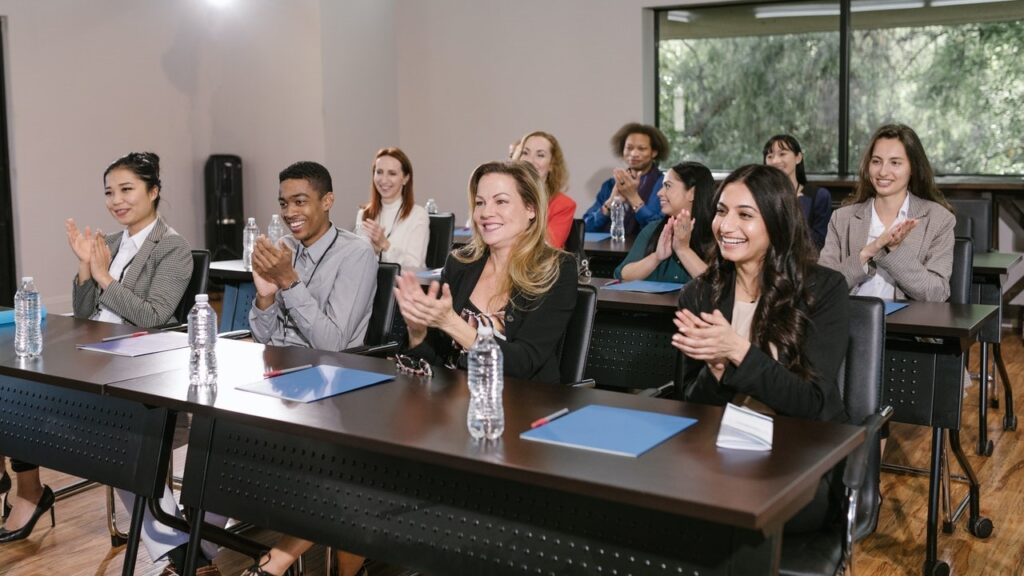Build Bridges and Spread Solutions: Reflections on the past and the path forward at the 2021 Trustee Education Institute

Courtesy of RODNAE Productions from Pexels
At the very onset of this year’s 2021 Trustee Education Institute, David Callahan, founding editor of Inside Philanthropy, said that even before COVID-19 and the social and political unrest of the last several years, he was skeptical of philanthropy’s ability to shift: “I doubted that most foundations would ever be willing to change,” he said, “and yet many foundations have changed their practice and have committed to continue on that track.”
Together we are building bridges and spreading solutions—but that only happens when we’re willing to engage in these challenging conversations. Kelly Nowlin said it best: “It’s not just about the difference we’re making at a single foundation, but about the larger purpose and what we’re achieving as a whole.” Throughout this year’s institute we were moved by the openness of all who attended, and your willingness to share the way your pace, practice, and purpose have and are shifting. Here are just some of the shifts shared at the 2021 Trustee Education Institute:
Pace
The COVID-19 pandemic has highlighted the need to act with urgency to address the acute and long-term needs of our communities. In Tulsa, the pandemic moved the George Kaiser Family Foundation to shift its pace to ensure the community was supported. “Within minutes we had an email authorization from the board to create this discretionary fund,” Emily Kaiser said. And when the foundation’s program officers said they needed more, the board responded accordingly. “That was the biggest change that we implemented on the spot, and it’s continued on. We’ve continued with cash transfer programs and what initially started as emergency responses that proved to be necessary long past the acute phase of this crisis,” Emily said.
Practice
Recent efforts to address longstanding and pervasive systemic racism have created a unique moment to reflect on the state of the social sector and explore how it should and must evolve. For the Hill-Snowdon Foundation this surfaced an opportunity to reflect on their values and shift their practice to ensure alignment. This included adding three non-family trustees in 2020. As Will Cordery shared: “They brought three of us on at the same time who all come from different spaces of advocacy, organizing, philanthropy, doing and leading interracial justice work—but all people of color into this family that hasn’t had that experience and yet has been committed to funding in communities of color.” The foundation also made the decision to increase its spending, repurpose funds and make personal sacrifices to provide funding for advocacy, organizing, direct response and mutual aid.
Purpose
Questions of relevance, equity, and power are taking center stage for philanthropic families—many of whom are grappling with such questions as they seek to make necessary shifts for greater impact. While The Libra Foundation decided to double its grantmaking and center racial justice prior to the pandemic and protests against police brutality, the events of the last two years have led the foundation to reflect on its purpose. “Leading up to 2020 we were acutely concerned about the connections between wealth accumulation among the few, the racialized nature of that accumulation, the concurrent erosion of representative democracy and this question, can America be a democracy with this kind of wealth inequality?” Regan Pritzker said. “That really raised the temperature on this conversation we were having around philanthropy and the right for it to even exist. What is our permission to operate? Who gives us that permission? How well are we meeting the needs of the people we are in theory serving? And are we the people who feel the most sense of urgency?”
Being personally invested in philanthropy can make this work more difficult, but it’s also what gives it meaning and keeps family philanthropies alive and thriving through generations. Leaders like Valerie Rockefeller, Emily Tow, and Kimberly Myers Hewlett shared stories of how they’ve found their passion within and outside of their family philanthropy, and how philanthropy has been the glue that keeps their families together. As Emily Tow shared: “I’ve been working at the foundation for 25 years and I wake up every day and think I’m so lucky I get to work with my family, I get to do good in the world, and so it’s been a tremendous joy to be involved in my family’s philanthropy.”
